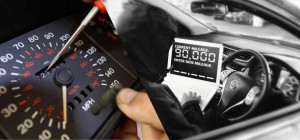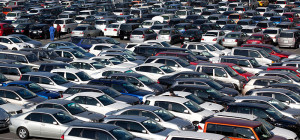 Towing a trailer can be quite dangerous since the extra wheels behind the towing truck can increase the chances of accidents significantly. The skill set required for towing a trailer extends beyond the basics of driving a truck.
Towing a trailer can be quite dangerous since the extra wheels behind the towing truck can increase the chances of accidents significantly. The skill set required for towing a trailer extends beyond the basics of driving a truck.
Overlooking tiny details while towing a trailer can result in major accidents. Serious problems like flipping, jackknifing etc. could be the outcomes of neglect while towing a trailer. From speeding up to slowing down, everything takes longer with a trailer attached. This is because, with a second center of mass, the entire vehicle becomes unstable.
Let’s take a look at a few ways that can make towing more efficient and safe.
Know the Towing Capacity
An overweight vehicle towing a trailer can be a major cause of accidents. Therefore, it is important to determine your truck’s Gross Combined Weight Rating (GCWR). This is the maximum amount of weight you can carry in your truck.
The curb weight is the weight of your truck. The cargo weight is the weight of the passengers along with the weight of cargo your truck is allowed to carry.
On top of this, the tongue weight should also be taken into consideration while towing a trailer. This is the portion of the trailer’s weight that lies on the hitch of the truck. The tongue weight should ideally be 10% of the weight of the trailer. If the weight is lesser than this, the trailer would sway continuously. On the contrary, excess tongue weight would take off the weight of the front tires of the truck and would make it difficult to drive.
Distributing the Weight Properly
It is crucial to distribute the weight of the cargo appropriately in order to keep the truck stable when it is in motion. The following steps will help you accomplish this accurately:The right approach to this would be to load the heavier weight first, place them towards the front and secure them with a rope.
- The right approach to this would be to load the heavier weight first, place them towards the front and secure them with a rope.
- You can place the lighter weights around and in between the heavier objects.
- While loading the trailer, position the weights in such a way that the sides of the trailer have an even weight distribution.
- Ensure that the load does not form tall columns since this increases the chance of toppling over.
You should distribute the weight in such a way that the center of gravity remains low.
Check the Tire Pressure
While towing, monitor your truck’s tires closely. It is important to ensure that the air pressure of your tires is correct. An under-inflated or over-inflated tire can be quite dangerous on the road especially with a trailer attached to your truck. You can also consider carrying a spare tire.
Be Careful While Braking
Before hitting the road with the trailer tagging along, it is important to check that the brakes of the truck are working properly. If the brakes fail to function somehow, the impact of the collision would be much larger than other vehicles because of the added weight of the trailer towing behind the truck. While braking, ensure that there is enough space for the truck to stop.
If your truck is hauling a heavy trailer, the trailer should be equipped with electronic brakes and the truck with a controller for the trailer’s brake that matches the brake output with the deceleration of the tow vehicle.
It is important to stay within the speed limit in order to avert any possibilities of tuck-trailer accidents.
Inspect the Trailer From Time to Time
It is always advisable to keep a watch on the tow vehicle from time to time while on the road. Stop in between traveling long distances and perform a visual inspection of the trailer.
Every time you pull over, check if the load is in the proper place, inspect the hitch thoroughly. Re-tighten any loose cables on the load. Check the air pressure of the tires. Ensure that the hitch pin and the hairpin are holding the drawbar properly.
Before starting, ensure that the lights of your truck work properly. Check the brake lights, indicator lights, headlights and so on. You should be extra careful while parking the vehicle. You can also consider practicing driving your truck with a tow vehicle to ensure that you have an idea what can go wrong on the road.
Contributed By: www.texas-truckaccidentlawyer.com







